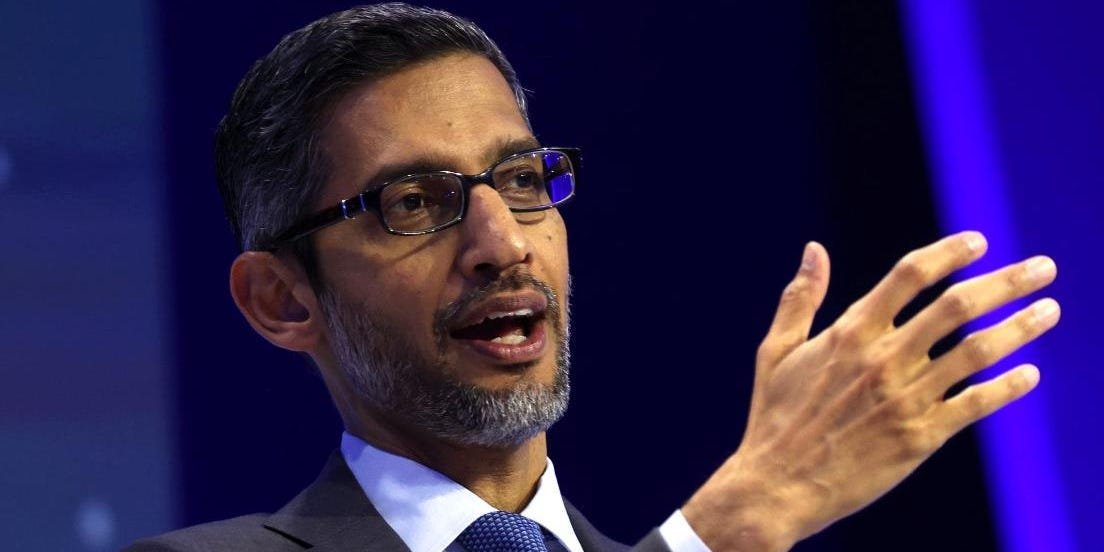
Take a look at our newest merchandise
Progress isn’t linear, and AI is not any exception.
As teachers, unbiased builders, and the most important tech firms on the planet drive us nearer to synthetic common intelligence — a nonetheless hypothetical type of intelligence that matches human capabilities — they’ve hit some roadblocks. Many rising fashions are liable to hallucinating, misinformation, and easy errors.
Google CEO Sundar Pichai referred to this section of AI as AJI, or “synthetic jagged intelligence,” on a latest episode of Lex Fridman’s podcast.
“I do not know who used it first, possibly Karpathy did,” Pichai mentioned, referring to deep studying and pc imaginative and prescient specialist Andrej Karpathy, who cofounded OpenAI earlier than leaving final 12 months.
AJI is a little bit of a metaphor for the trajectory of AI improvement — jagged, marked directly by sparks of genius and fundamental errors.
In a 2024 X put up titled “Jagged Intelligence,” Karpathy described the time period as a “phrase I got here up with to explain the (unusual, unintuitive) proven fact that state-of-the-art LLMs can each carry out extraordinarily spectacular duties (e.g. clear up complicated math issues) whereas concurrently battle with some very dumb issues.” He then posted examples of state-of-the-art massive language fashions failing to know that 9.9 is greater than 9.11, making “non-sensical selections” in a sport of tic-tac-toe, and struggling to rely.
The difficulty is that not like people, “the place a number of information and problem-solving capabilities are all extremely correlated and enhance linearly all collectively, from start to maturity,” the jagged edges of AI aren’t all the time clear or predictable, Karpathy mentioned.
Pichai echoed the thought.
“You see what they’ll do after which you possibly can trivially discover they make numerical errors or counting R’s in strawberry or one thing, which appears to journey up most fashions,” Pichai mentioned. “I really feel like we’re within the AJI section the place dramatic progress, some issues do not work nicely, however general, you are seeing numerous progress.”
In 2010, when Google DeepMind launched, its crew would speak about a 20-year timeline for AGI, Pichai mentioned. Google subsequently acquired DeepMind in 2014. Pichai thinks it will take a bit longer than that, however by 2030, “I’d stress it would not matter what that definition is as a result of you should have mind-blowing progress on many dimensions.”
By then the world can even want a transparent system for labeling AI-generated content material to “distinguish actuality,” he mentioned.
“Progress” is a imprecise time period, however Pichai has spoken at size about the advantages we’ll see from AI improvement. On the UN’s Summit of the Future in September 2024, he outlined 4 particular ways in which AI would advance humanity — bettering entry to information in native languages, accelerating scientific discovery, mitigating local weather catastrophe, and contributing to financial progress.
However, first, it must be taught to spell “strawberry.”

![[Netflix Certified & Auto Focus] Smart 4K Projector, VGKE 900 ANSI Full HD 1080p WiFi 6 Bluetooth Projector with Dolby Audio, Fully Sealed Dust-Proof/Low Noise/Outdoor/Home/Bedroom](https://i0.wp.com/m.media-amazon.com/images/I/71yY+2ryOZL._AC_SL1500_.jpg?w=300&resize=300,300&ssl=1)
![[Netflix Official & Auto Focus/Keystone] Smart Projector 4K Support, VOPLLS 25000L Native 1080P WiFi 6 Bluetooth Outdoor Projector, 50% Zoom Home Theater Movie Projectors for Bedroom/iOS/Android/PPT](https://i2.wp.com/m.media-amazon.com/images/I/71Emwd78tlL._AC_SL1500_.jpg?w=300&resize=300,300&ssl=1)


![[Win 11&Office 2019] 14″ Rose Gold FHD IPS Display Ultra-Thin Laptop, Celeron J4125 (2.0-2.7GHz), 8GB DDR4 RAM, 1TB SSD, 180° Opening, 2xUSB3.0, WIFI/BT, Perfect for Travel, Study and Work (P1TB)](https://i3.wp.com/m.media-amazon.com/images/I/71CzO7Oc8jL._AC_SL1500_.jpg?w=300&resize=300,300&ssl=1)








